Nigeria
As Africa’s biggest economy, Nigeria is battling its way out of an economic crisis fuelled by fall in oil prices.
The International Monetary Fund (IMF) chief, Christine Lagarde has called on Nigeria to diversify its revenue.
Lagarde made this call at the presidential villa in Abuja, moments after holding talks with President Muhammadu Buhari during her four-day visit to the West African country to discuss plans on sustaining its economy.
The IMF boss also discussed the challenges faced by Africa’s biggest oil producer with Finance Minister Kemi Adeosun since arriving in Nigeria on Monday.
Lagarde said she was not in Nigeria to negotiate a loan given the determination and resilience displayed by the president and his team. She supported Buhari’s fight against corruption terming it “very important” and adding that the president’s reform could have a positive impact in the region.
“What I certainly mentioned to mister president this morning was that his fight and his determination to fight corruption and his determination to bring about transparency and accountability at all levels of the economy were very important agenda items and very ambitious goals that need to be delivered upon which he himself is definitely committed to as he indicated this morning,” Lagarde said.
It would be recalled that Buhari has backed measures imposed by the central bank to restrict access to foreign exchange which has been unpopular with investors. The president has also campaigned against over dependence on crude oil exports which accounts mostly for the country’s revenue.
Buhari resumed office in May 2015 as Nigeria’s president with a promise to clamp down on corruption that has left many Nigerians in poverty despite its rich natural resources and enormous wealth.
Buhari recently announced a record budget for 2016, forecasting a doubling of the deficit to 2.2 trillion naira (11 billion U.S. dollars) and a tripling of capital expenditure intended to help the country adjust to the slide in oil price.




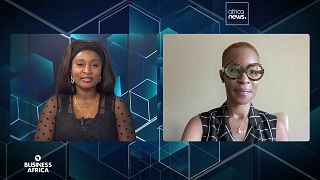
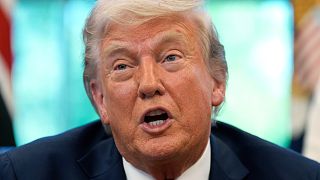
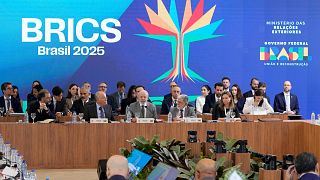
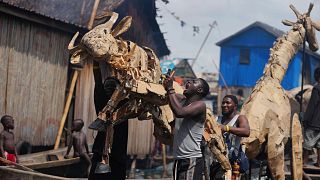




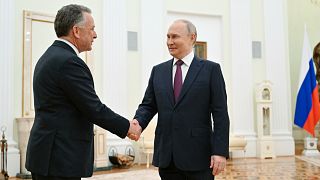
01:16
Africa mourns Pope Francis, a voice for peace and justice
01:14
ECOWAS Meets in Ghana to Tackle Member Withdrawals
Go to video
Funeral held in Kenya for TikTok content moderator
01:36
Migration and refugee policies key to economic growth, Say UN and IMF experts
Go to video
Foreigners face gold trading ban in Ghana beginning May 1
Go to video
EU foreign ministers discuss Ukraine, Syria and EU-African relations in Luxembourg.